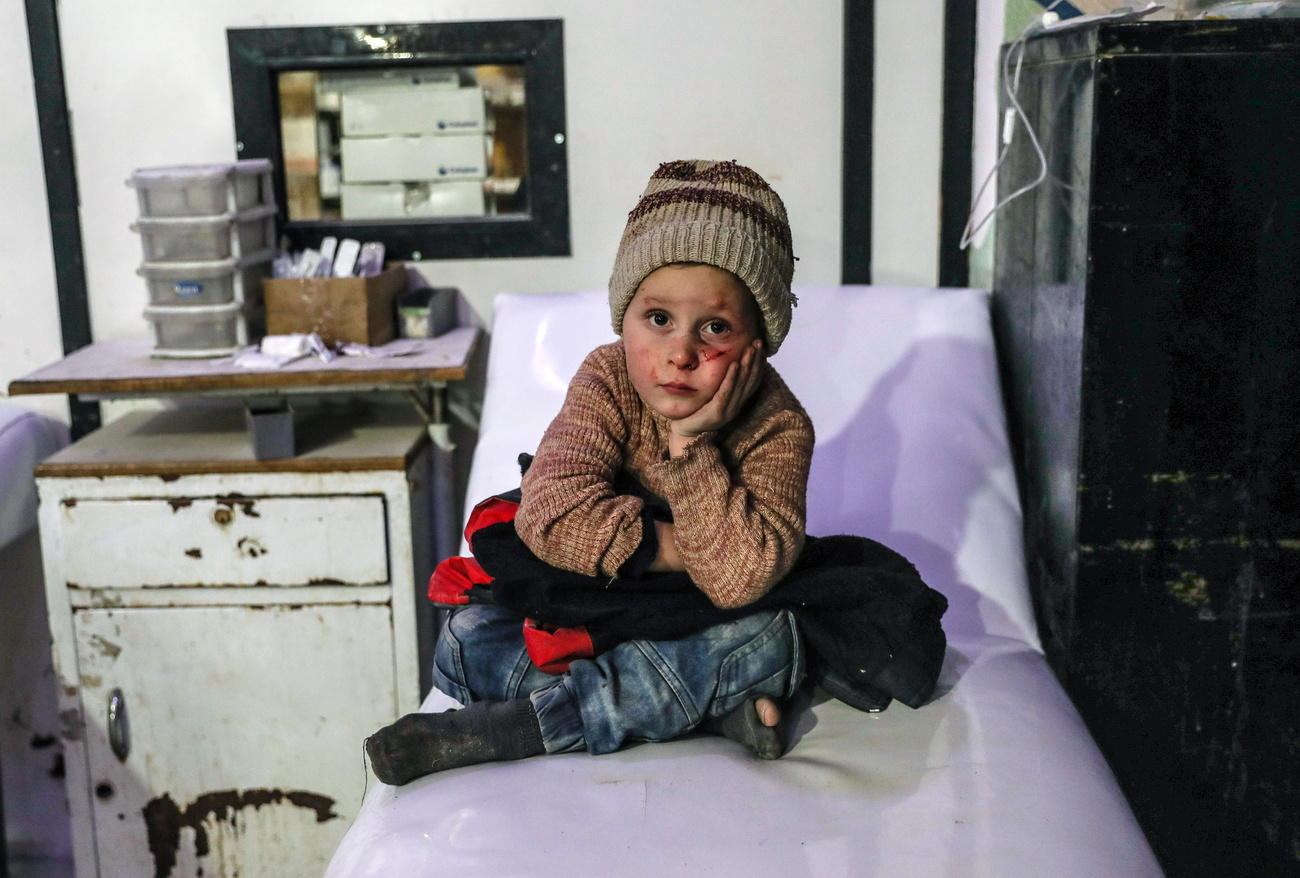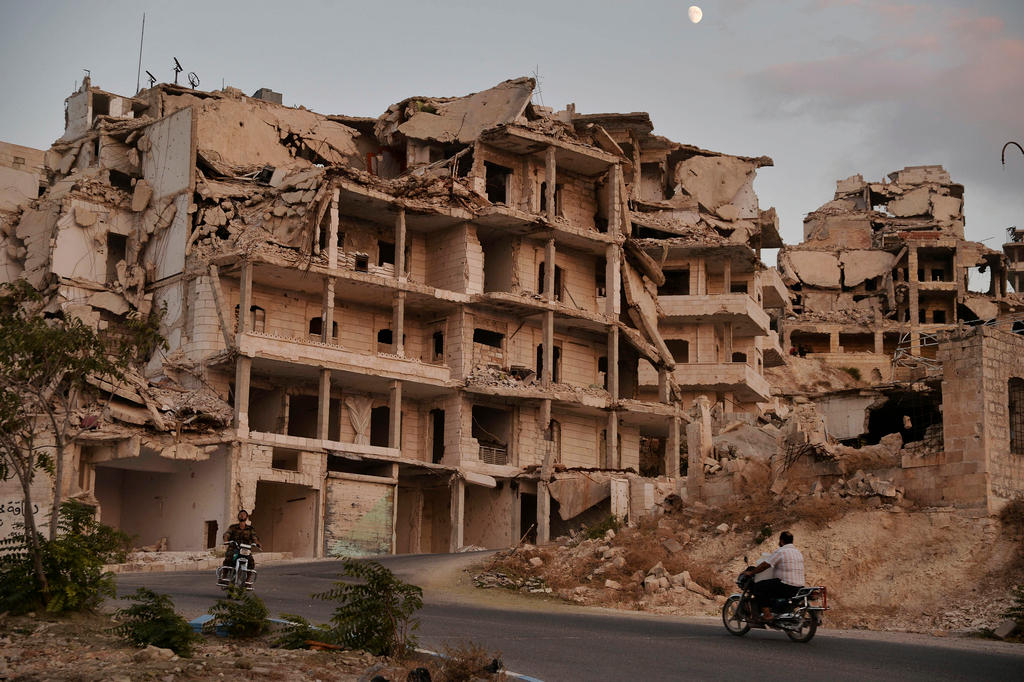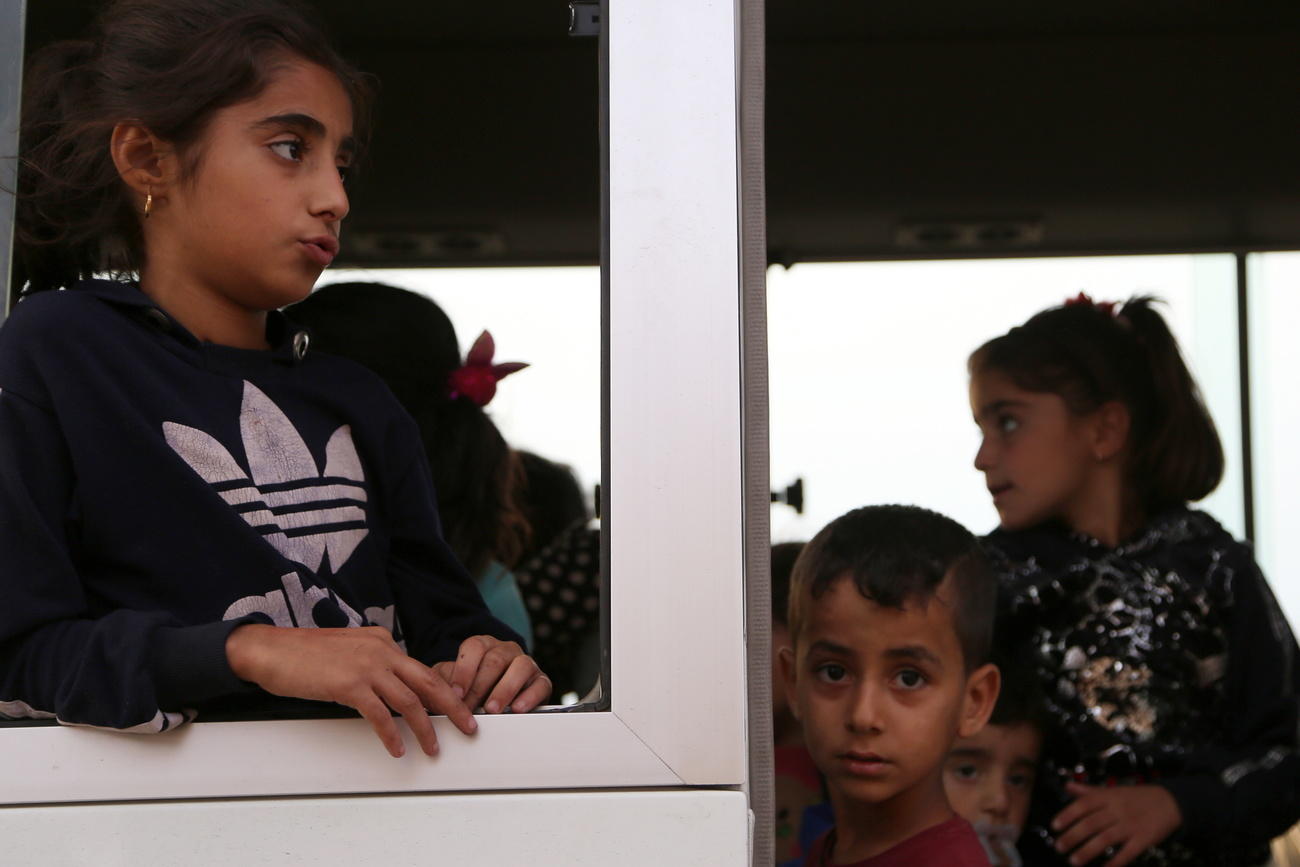
Is a door opening to peace in Syria?

The first meeting of Syria's 150-member Constitutional Committee is due to take place in Geneva on October 30 to draft a new constitution. Could this lead to a breakthrough in efforts to end the war?
‘Syria envoy opens door to resolving 8 ½ year war.’ That was just one of the headlines which greeted the news that, after years of trying, the UN had finally agreed a list of participants for the long awaited constitutional committee, the body designed to draw up new, more democratic, political structures for Syria, followed by elections.
Here in Geneva journalists began preparing for the arrival of those participants: 150 of them no less, divided equally into three groups: government, opposition, and civil society. But do we share the optimism of that headline?
“Not especially,” said one, pointing out that some of the Syrians in that 150-strong group are already being viciously ‘rubbished’ on Arabic language social media.

More
What now for Syria?
I too find it difficult to be especially hopeful. For seven years I have been covering ‘peace talks’ on Syria. I can remember the hot day in June 2012 when Kofi Annan, Hillary Clinton, Sergei Lavrov, and other senior world diplomats met, and agreed, Mr Annan said in a communique afterwards, on the need for ‘a transitional government with full executive powers’.
Hardly had that statement hit the headlines than it became clear that world leaders had different understandings about what it meant. The US continued to insist that Syria’s president, Bashar Hafez al-Assad, would have no place in such a transitional government. Russia was more circumspect, suggesting it would be up to Syrians to decide their future leader.
That was Geneva 1. Since then we have had Geneva 2, and many further rounds of negotiations. Some in the full glare of the world’s media, some firmly behind closed doors. We have had tit-for-tat press conferences in which Syrian government representatives appear and insult the opposition, followed by opposition representatives insulting the government. They never appeared together, of course, and even in the most intense phase of negotiations rarely, if ever, met face to face. One UN envoy (we are currently on our fourth) even resorted to a specially designed table to allow the two sides to meet in the same room, without having to look each other in the eye.

More
Swiss foreign minister meets UN special envoy to discuss Syria
Unimaginable suffering
All the while, the war ground on. Every form of violence, deprivation, and humiliation imaginable has been visited on the Syrian people. Incessant bombing and shelling, siege, starvation, torture, rape. Millions have fled, neighbouring countries struggle under the burden of housing the refugees, while here in Europe governments fret and quibble about taking in a few thousand.
There is no sustainable solution to this but peace. Every expert in conflict resolution and peace building will tell you that. But they will also tell you that making peace is never easy, and rarely fast. Meanwhile those with geopolitical interests in Syria (most notably Turkey at the moment) still, after eight long years, seem to think the ‘quick and dirty’ route of sorting the whole thing out using brute force on the ground might actually work.
Others, like the United States, offer a confused message which, when analysed, simply reads ‘not our problem’.
Both brute force and abrupt disengagement are dangerous short-termism. Neither policy will end the conflict, neither will support lasting peace. Instead, both are sure to perpetuate the misery in Syria, and to store up resentment and potential danger for all of us, for decades.

More
Swiss foreign minister sees Syrian peace within reach
UN patience and expertise
But most governments tend to think short term, to the next election in fact. Luckily we have the United Nations, which is in this for the long term, and is truly the only body with the patience, expertise, and impartiality to negotiate peace in Syria.
When UN Secretary General Antonio Guterres announced the constitutional committee, he said: ‘I firmly believe that the launching of a Syrian-organised and Syrian-led constitutional committee can be the beginning of a political path towards a solution.’
Note the language: ‘launching’…’the beginning’…’path towards’. Mr Guterres and special envoy Geir Pedersen know this is the start of what will surely be a slow and very complicated process.
But at least the UN, and Geneva, have a track record. Many many peace talks have taken place here; on Vietnam, on Bosnia, on Cyprus, on East Timor, and, ongoing and little reported, the Geneva International Discussions, which bring together representatives from Georgia, Russia, South Ossetia and Abkhazia, in a bid to reduce tensions and prevent any further conflict.
Not all of those processes were successful, not all of them were actually completed in Geneva. The Bosnia peace deal, for example, was finally signed in Dayton Ohio. And the Iran nuclear deal, which diplomats and correspondents spent sleepless nights over in Geneva, was, sadly, quickly undermined by a new administration in Washington’s decision to withdraw.
So we may be sceptical about the upcoming constitutional committee, not just because this war has lasted so long, but because its size, with 150 members, seems so very unwieldy. But these 150 representatives, together with the UN, are at least taking the first step, and they should be supported in that.
No one should expect this to be quick, or easy. What the Syrian people have a right to expect though, is serious engagement in Geneva, and serious disengagement on the battlefield.
You can follow Imogen Foulkes on twitter at @imogenfoulkes, and send her questions and suggestions for UN topics.

In compliance with the JTI standards
More: SWI swissinfo.ch certified by the Journalism Trust Initiative


























You can find an overview of ongoing debates with our journalists here . Please join us!
If you want to start a conversation about a topic raised in this article or want to report factual errors, email us at english@swissinfo.ch.